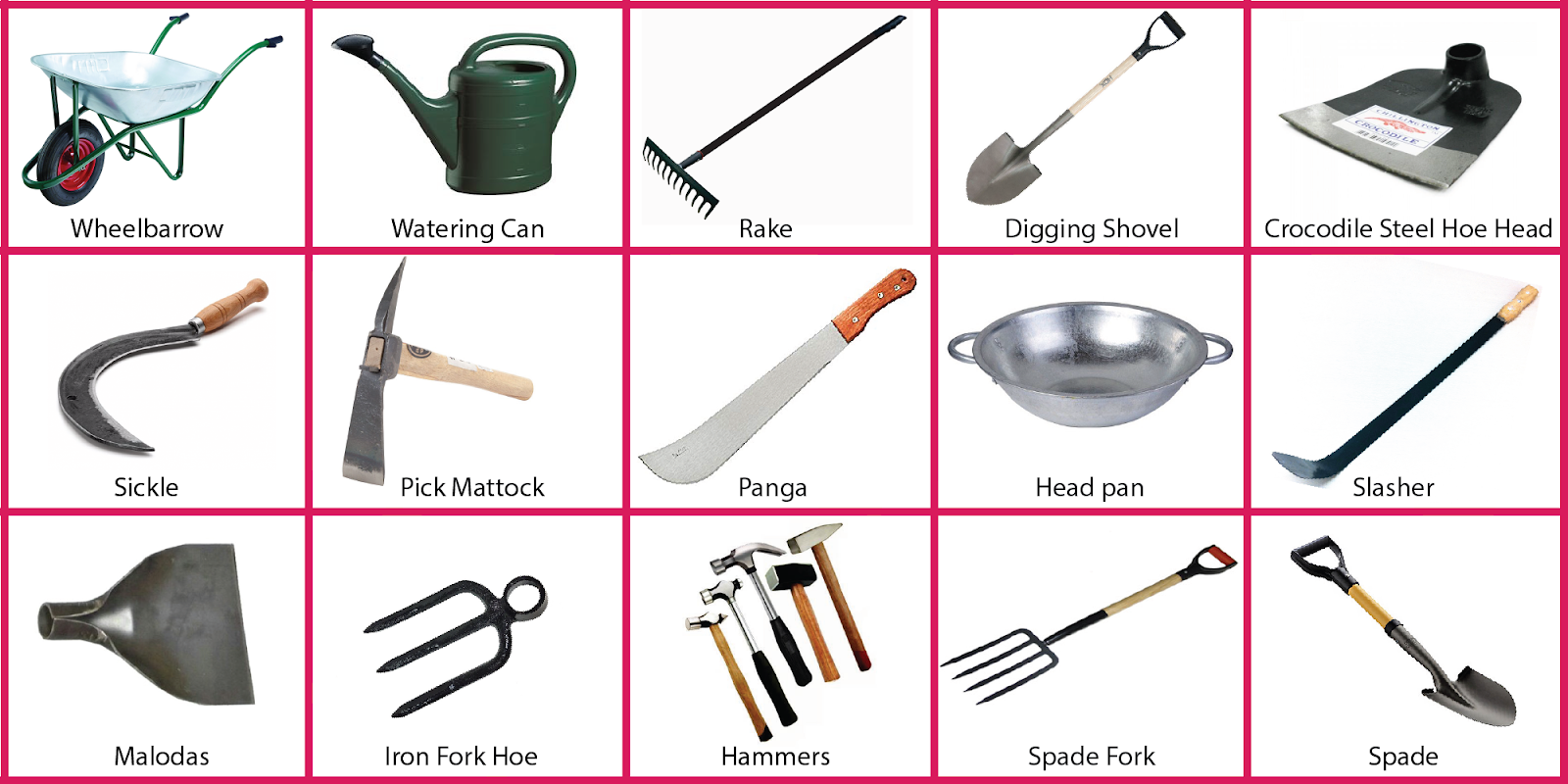Farming is an age-old profession that has evolved over centuries, but the importance of the right tools has remained unchanged. Whether you're a seasoned farmer or a novice just starting out, understanding the various farming tools names is crucial for enhancing productivity and ensuring a successful harvest. From traditional hand tools to modern machinery, the right equipment can make all the difference in your farming endeavors.
In this article, we will delve into the world of farming tools names, exploring their functions, types, and how they can aid in various agricultural tasks. Understanding these tools not only helps in selecting the right equipment but also aids in maintaining and caring for them, which is essential for their longevity and effectiveness. With the right farming tools, you can cultivate your land efficiently, manage crops effectively, and ultimately achieve a bountiful harvest.
Join us as we explore the essential farming tools names that every farmer should know. From hand-held implements to large-scale machinery, this guide will serve as a comprehensive resource for anyone looking to enhance their farming toolkit. Let’s dig in!
What Are the Most Common Farming Tools Names?
When it comes to farming, there are a myriad of tools available, each designed for specific tasks. Here are some of the most common farming tools names:
- Shovel: Used for digging and moving soil or compost.
- Hoe: Useful for breaking up soil and removing weeds.
- Rake: Ideal for leveling soil and gathering debris.
- Plow: Essential for turning over the soil and preparing fields for planting.
- Tiller: Used for breaking up soil and mixing in fertilizer.
- Sickle: A hand-held tool for cutting grass or grain.
- Fertilizer Spreader: Used to evenly distribute fertilizer across fields.
- Watering Can: Essential for watering plants, especially in smaller gardens.
How Do Different Tools Impact Farming Efficiency?
Efficiency in farming is greatly influenced by the tools used. The right farming tools names can significantly reduce labor time and improve yield. For instance, using a tractor equipped with a plow can turn over large fields much faster than manual labor. Similarly, using a tiller can save time and energy compared to traditional hand tools.
Moreover, modern farming tools often come with advanced technology that improves precision and reduces waste. For example, GPS-guided tractors can help in planting crops in straight lines, ensuring optimal spacing and minimizing overlapping. Understanding the impact of these tools on farming efficiency is essential for any farmer looking to maximize their output.
What Are Some Innovative Farming Tools Names to Know?
Innovation in farming tools is continuously evolving, offering farmers more efficient solutions. Here are some innovative farming tools names that are gaining popularity:
- Drones: Used for monitoring crop health and assessing field conditions.
- Smart Irrigation Systems: Automated systems that optimize water usage.
- Seed Drills: Machines that plant seeds in neat rows at the correct depth.
- Crop Sensors: Devices that provide real-time data on crop conditions.
What Are Hand Tools and Their Importance in Farming?
Hand tools are the backbone of traditional farming practices. Despite the rise of machinery, hand tools remain essential for small-scale farmers and gardeners. Here are some key hand tools:
- Hand Trowel: Ideal for transplanting seedlings and digging small holes.
- Pruning Shears: Used for trimming plants and trees to promote growth.
- Garden Fork: Useful for turning soil and aerating compost.
- Wheelbarrow: Essential for transporting materials around the farm.
The importance of hand tools cannot be overstated. They allow for greater control and precision, particularly in smaller gardens or when working with delicate plants. Additionally, they are often more affordable and easier to maintain than larger machinery.
How to Choose the Right Farming Tools Names for Your Needs?
Selecting the right farming tools is a critical decision that can affect productivity and efficiency. Here are some tips to help you choose wisely:
- Assess Your Needs: Consider the size of your farm and the types of crops you grow.
- Research Tool Options: Look into various farming tools names and their functions.
- Budgeting: Determine how much you are willing to invest in tools.
- Quality Over Quantity: It’s better to have a few high-quality tools than many low-quality ones.
By carefully assessing your needs and doing thorough research, you can make informed choices that will benefit your farming operations in the long run.
What Maintenance Practices Should Be Followed for Farming Tools?
Proper maintenance of farming tools is essential for ensuring their longevity and effectiveness. Here are some maintenance practices to follow:
- Regular Cleaning: Keep tools clean from dirt and debris after each use.
- Sharpen Blades: Ensure that cutting tools are sharp for efficient use.
- Rust Prevention: Apply oil or protective coatings on metal tools to prevent rust.
- Storage: Store tools in a dry place to avoid moisture damage.
What Role Do Power Tools Play in Modern Farming?
Power tools have revolutionized farming practices, allowing for more efficient and precise work. Here are some examples of power tools in farming:
- Tractors: Used for plowing, tilling, and transporting materials.
- Harvesters: Machines designed to efficiently harvest crops.
- Sprayers: Used for applying pesticides and fertilizers.
- Chippers: Useful for processing plant waste and creating mulch.
These power tools not only save time but also reduce the physical strain on farmers, making it easier to manage large plots of land.
Conclusion: Why Knowing Farming Tools Names Matters?
In conclusion, understanding farming tools names is crucial for anyone involved in agriculture. It enhances productivity, improves efficiency, and ensures that farmers can select the right tools for their specific needs. From hand tools to innovative machinery, the right equipment can make farming tasks easier and more effective.
Whether you are planting seeds, harvesting crops, or managing your farm, having a solid knowledge of farming tools names is essential for success. By investing in the right tools and maintaining them properly, farmers can ensure a fruitful harvest year after year.



